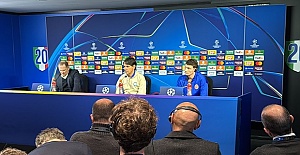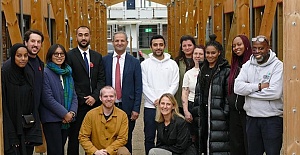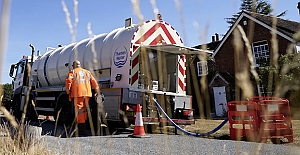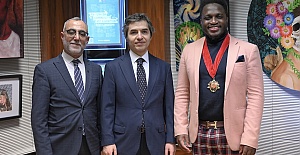At the LibDem Conference in Glasgow this week, Ben Jones, Chair of the Party’s Europe Working Group successfully proposed a motion on the EU. Here is his text, first published in a blog piece for the European Movement (UK) euroblog:
The UK’s future is in a prosperous, sustainable and secure European Union.
Next year marks the centenary of the First World War: that cataclysm that opened up the darkest decades in European history. We should be grateful that – for all our concerns – the Europe of today enjoys an unprecedented peace: its peoples among the most free and prosperous on earth.
Without the sacrifice of our ancestors we would not have that freedom.
But neither must we forget that the peace and prosperity we enjoy today did not glide effortlessly out of post-war Europe. Nor was it underpinned by the military might of NATO alone.
In fact it was a soldier – the great American General, George Marshall – who surveyed a broken post-war Europe, and saw that without common endeavour, there would be no prosperity and therefore no security to speak of. He, like Churchill, Schuman and others, understood that old Europe had failed – and, unchanged, would fail again. The mould had to be broken.
So, when that centenary comes next year, let’s not be complacent about what we have today. Let’s be glad that Europe was re-founded on common endeavour – on democracy, human rights and the rule of international law. Glad that Britain supported and became a part of it. And glad, that we Liberal Democrats have never wavered from that vision – always the party of In. The EU has faced big tests in its history and yet the challenges of the future will be – in many ways - just as formidable as those of the past. The world is changing rapidly – a global shift in economic power the like of which has not been seen for centuries. Globalisation gathers pace – across trade, new technologies, people and ideas. We should welcome the opportunities this new world offers. But neither can we ignore the tests it will bring: tougher competition, cross-border crime, fragile states, instability on European borders, and unprecedented environmental challenges, not least climate change.
Certainly, no nation today can tackle all this alone. But the question for the EU remains – can it meet the challenge and continue its historic purpose of prosperity, sustainability and security? Our firm view is that it can. But as reformers and critical friends of the EU, we believe that only by focusing ruthlessly on those areas where it can really make a difference will the EU win back the trust of all its citizens. So in our motion:
First, if the EU does not stand for prosperity and jobs, it stands for nothing. In the wake of the Eurozone crisis, getting the single currency on to a firm footing will be a long and difficult process, but it remains as vital for the UK economy as any other, and we must support it. But setbacks must not blind us to the opportunities of the single market. The world’s biggest marketplace – Britain’s biggest market. An 11 trillion pound economy linked to millions of British jobs, and a pre-requisite for billions of pounds of inward investment into our country. Without it, we would be poorer. And we still need to unlock that market on our doorstep – in services, digital and green technology. We need to work hard for EU trade deals with the US and others to unlock billions in GDP and deliver more jobs. But only as part of the world’s biggest single market can the UK hope to get the best deal from tough negotiations with trading giants. And, let’s be absolutely clear, the only way to influence and determine the rules of the single market is through EU membership – the Norwegian and Swiss models are either undemocratic, ineffective or both and none cut it for the UK.
Second, sustainability – we want ambitious new EU targets to reduce greenhouse gases. We want continued radical reform of fisheries and agricultural policies including a complete end to wasteful fish discards.
Third, a more secure Europe. Police and prosecutors must have the tools they need to catch the criminals who slip across borders. But we want a fair Europe too – ensuring common-sense use of the European Arrest Warrant and levelling the rights of suspects up – not down – across Europe.
And it is vital that the EU speaks with a more coherent voice in the world – combining diplomacy, trade and development more effectively, and pooling and sharing military capability to get value for money and meet our commitments. Deeper Eurozone integration is a necessity. But it must not compromise the coherence of the single market. Future treaty change should guarantee equal voice for euro ins and euro outs in single market rules. And, if the EU is to win back the trust of its publics, it needs to work harder to demonstrate accountability, efficiency and transparency in all that it does. That means more effective scrutiny from national parliaments on subsidiarity. And it means greater transparency – secret ballots on budget and policy in the European Parliament are unacceptable. But when it comes to reform – let’s be clear. Tory hopes for a swag-bag of unilaterally repatriated powers are an illusion – a huge waste of diplomatic capital. Yes the EU needs renewal and reform – but you only do that by leading and building alliances for change with like-minded countries. And – as we have argued consistently – the next time the UK signs up for a significant transfer of powers, triggering the EU Act, we should have an In Out referendum, giving the public a say on the whole relationship.
Sceptics will say this agenda is too ambitious. But our record shows it can be done: Chris Davies MEP leading a historic reform of EU fisheries policy. Ed Davey MP working with like-minded states to win an opt-out from regulations for small businesses. Sharon Bowles MEP negotiating hard to ensure non-euro states like the UK have a strong voice in future decisions on financial services. This is the winning approach. Getting stuck in, leading the agenda, building coalitions for change. Renewing and reforming the EU for the 21st Century. No surprises then that a recent survey found Lib Dem MEPs to be the hardest working. And no prizes for guessing who are the laziest… There’s a wonderful double meaning in the name UKIP. It’s not just what’s written on the ballot, it’s their daily approach to politics: You get up. You get your expenses. You kip.
With the right attitude, we can ensure a reformed EU delivers – on jobs, on crime and the environment. But we have a fight on our hands. There is a new isolationism creeping into our politics – a delusion that Britain can simply pull up the drawbridge and escape all the demands of the modern world. It is hurting our influence in Brussels. The fact is without EU membership we can’t have a stronger economy and a fairer society. This country would matter less in the world. That’s why President Obama – like each president before him for sixty years – insists that we walk taller in Washington when we count for something in Europe. No offence Geneva – but I don’t want the UK to be a big Switzerland. I’m proud that this country fought for freedom in Europe, drafted the European Convention on Human Rights, pioneered the biggest single market in the world, is a UN Security Council member – a country that wants a say on our children’s future in this world, and – when push comes to shove – will stand up and be counted.
Does anyone really believe that we can be that same country if we leave the European Union?


 After Nesil Caliskan a by-election will be held in Jubilee ward in Enfield
After Nesil Caliskan a by-election will be held in Jubilee ward in Enfield Publishing the analysis, Labour’s Cllr Ergin Erbil said Everybody in Enfield deserves basic rights
Publishing the analysis, Labour’s Cllr Ergin Erbil said Everybody in Enfield deserves basic rights Gaza-Israel conflict Statement from Cllr Ergin Erbil, Leader of Enfield Council
Gaza-Israel conflict Statement from Cllr Ergin Erbil, Leader of Enfield Council Cllr Ergin Erbil was elected as the new Leader of Enfield Council
Cllr Ergin Erbil was elected as the new Leader of Enfield Council The European Union called on Turkey to uphold democratic values
The European Union called on Turkey to uphold democratic values Turkish citizens in London said Rights, Law, Justice
Turkish citizens in London said Rights, Law, Justice The Council of Turkish Cypriot Associations Geneva response letter
The Council of Turkish Cypriot Associations Geneva response letter Sustainable Development and ESG, Will This Become the Course for Turkic World
Sustainable Development and ESG, Will This Become the Course for Turkic World Saran Media And Euroleague Basketball Extend Media Rights Partnership for Four More Years
Saran Media And Euroleague Basketball Extend Media Rights Partnership for Four More Years Will Rangers be Jose Mourinho’s next victim?
Will Rangers be Jose Mourinho’s next victim? Jose Mourinho's Fenerbahce face Rangers on Thursday
Jose Mourinho's Fenerbahce face Rangers on Thursday Inzaghi stated that they felt the absence of our national player Hakan Çalhanoğlu
Inzaghi stated that they felt the absence of our national player Hakan Çalhanoğlu Enfield Council at a special awards ceremony
Enfield Council at a special awards ceremony Enfield Council continues to invest in Edmonton, supported by £11.9 million in funding
Enfield Council continues to invest in Edmonton, supported by £11.9 million in funding Survey shows improvements in Enfield Council’s housing services
Survey shows improvements in Enfield Council’s housing services Why is Thames Water in so much trouble?
Why is Thames Water in so much trouble?















